This list is neither complete nor exhaustive, but includes many of the more prolific and better known composers of the last 300 years. An exhaustive list would also include hymn composers, hymn text writers, and composers of spiritual songs.
The composers of Moravian music throughout history have been primarily people with other vocations. Moravian composers of the 18th and 19th century were also pastors, teachers, and administrators, with responsibilities far beyond composing and directing music. These Moravian composers wrote very few pieces of independent instrumental music, though the Moravians used instrumental music extensively for instruction and enjoyment.
Among the most influential, prolific, and/or enduring Moravian composers were:
- John Antes (1740-1811), Pennsylvania-born instrument maker, missionary, and composer of the earliest known instrumental chamber music by an American born composer;
- Johann Christian Bechler (1874-1857), German minister, one of the first professors at Moravian Theological Seminary, later elected bishop;
- Jeremias Dencke (1725-1795), German organist and composer of the earliest example of Moravian concerted church music in America;
- Johann Ludwig Freydt (1748-1807), teacher in Moravian schools, co-worker with Christian Latrobe;
- Johann Christian Geisler (1729-1815), German Moravian minister and member of the Unity Elders Conference;
- Christian Gregor (1723-1801), minister, organist, and church administrator and bishop; editor of the German Gesangbuch of 1778 and the Choralbuch of 1784, both highly influential for more than a century;
- Johann Daniel Grimm (1719-1760), musician and teacher of Johann Friedrich Peter; compiler of the 1755 manuscript chorale book of almost 1,000 tunes;
- Francis Florentine Hagen (1815-1907), American Moravian teacher, pastor, and evangelist;
- Johannes Herbst (1735-1812), bookkeeper, teacher, organist, pastor, bishop, headmaster of Moravian girls’ school in Lititz, Pennsylvania, and a prolific composer and copyist of other Moravian composers’ works;
- Christian David Jaeschke (1755-1827), descendant of early Czech immigrant family, teacher, organist, and copyist;
- Christian Ignatius Latrobe (1758-1836), English Moravian missions administrator, and friend of Franz Joseph Haydn;
- Heinrich Lonas (1838-1903), organist and teacher, editor of a Moravian chorale book used in Germany;
- David Moritz Michael (1751-1827), German Moravian teacher and worker with the single brethren in Nazareth and Bethlehem, leader of Bethlehem Collegium musicum and composer of wind ensemble music and sacred vocal works;
- Johann Friedrich Peter (1746-1813), pastor, teacher, music director, and composer of more than 80 sacred vocal works and 6 string quintets, possibly the earliest chamber music written in America;
- Simon Peter (1743-1819), brother of J. F. Peter, pastor and church administrator;
- Johann Christopher Pyrlaeus (1713-1785), first Moravian musician to serve in Native American missions; organizer of first Moravian Indian-language school and translator of many hymns into Mohican language; established Bethlehem Collegium musicum;
- The “Van Vleck sisters,” Amelia Adelaide (1835-1929), Lisette Marie Van Vleck Meinung (1830-1914); Louisa Cornelia (1826-1902), all teachers at Salem Female Academy and composers primarily of well crafted and sophisticated salon music for piano, voices, and guitar;
- Jacob Van Vleck (1751-1831), pastor and inspector of Bethlehem girls’ school, bishop and musician, grandfather of the Van Vleck sisters;
- H. M. H. W. Voullaire (1825-1902), teacher and pastor of several European Moravian congregations, composer in the style of Brahms;
Countless others who served the church through their musical abilities alongside their other vocations, include these and many more:
Christian Ludwig Brau
Theodor Lily Clemens
Ernst Immanuel Erbe
John Gambold Jr
Johann Gottfried Gebhard
Christian Gottfried Geisler
Christian Friedrich Hasse
Edward W. Leinbach
James Montgomery
Georg Gottfried Müller
Abraham Ritter
Johann Christian Till
John Frederick Wolle
Peter Wolle
John Worthington
This list just barely makes it into the 20th century.
Moravian composers today, like their forebears in the faith, are primarily trained musicians who may or may not be employed, but are certainly involved, in church music, music education, or music performance. Many will have non-music or non-church professions and still serve the Moravian Church through music.
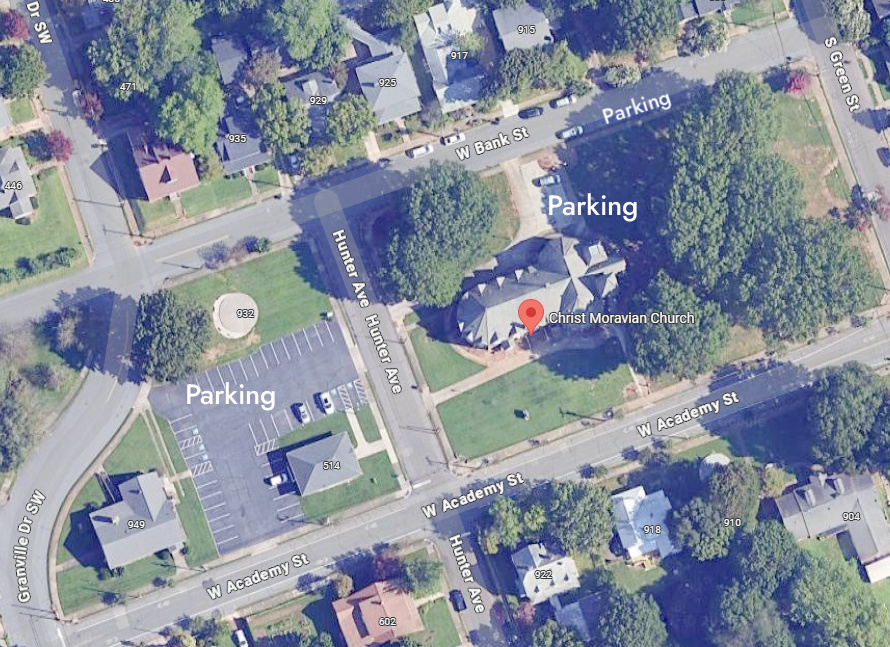
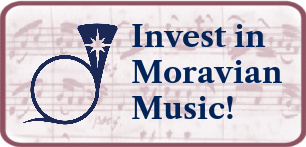

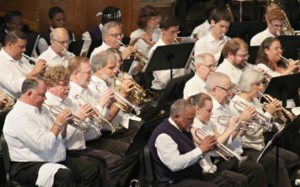
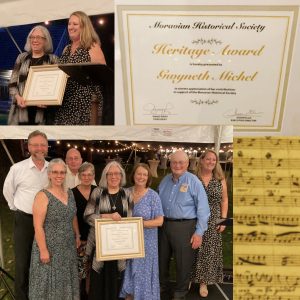
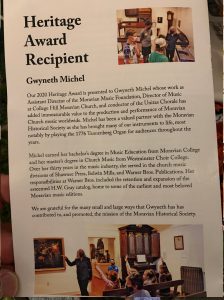
Why isn’t John Antes Latrobe listed? I saw his name associated with John Antes’; it looked like he was a composer. Clearly they are related (although I have never heard of him before).
Also, I know Johann Johannes Antes’ music by the hymn tunes, such as Falkner, named for the area where he was born in PA. Can I find it by the tune name?
I have seen (and even played) his violin at the Whitfield House in Nazareth, but I know very little about his instrument making — I only knew he made the violin. Where can I find more information? I have read Crewes, but it he glossed over it. I have a vested interest: I am an Antes descendant–of his sister, Elizabeth, my fourth g-grandmother. And I have been a violinist all my life. Any help would be appreciated.
Very interesting. It is quite a feat that Antes, born in America, acquired such luthier skills. There was an exhibit at the Moravian Archives a few years ago about the Moravian Instrument Makers. I will try to send you the name of the researcher and send you some images from the display.
Christian Ignatius Latrobe was a Moravian from England. He is listed under “L” I’ll double check but I think Antes married Latrobe’s daughter.